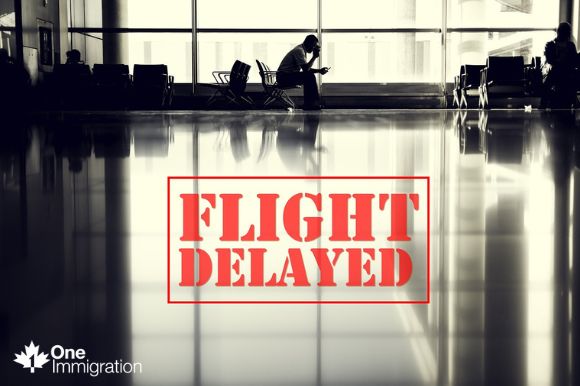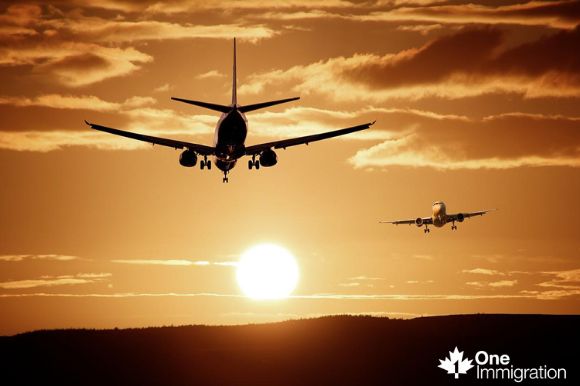Flight delays and cancelations in Canada
New information for those who want to fly to Canada or have a flight booked in Canada. The majority of Canada’s vaccine travel restrictions have been lifted following a chaotic weekend of cancellations and delays. It coincides with an increase in demand for travel ahead of the busy summer season. Due to this, there has been an increase in cancellations and delays, causing frustrations for the airlines and those who travel with them.
You are entitled to certain rights when you fly in Canada. Air Passenger Protection Regulations were developed by the Canadian Transportation Agency (CTA) to establish minimum airline obligations towards passengers.

If a flight is delayed or canceled, the airline is required to:
- Provide you with information about your rights and available remedies;
- Explain the reason for the disruption; and
- Inform you of the progress during the delay.
Depending on the reason for the delay or cancellation of the flight, an airline has minimum obligations to its passengers, which may include standard of treatment, rebookings or refunds, and compensation.
- In the event that your flight is delayed or canceled and the cause is the airline’s responsibility and not safety-related, you may be entitled to a specific standard of treatment, compensation, and rebooking or a refund.
- When a flight is delayed or canceled and the cause is within the control of the airline, and required for safety reasons, you are entitled to a specified level of treatment and a rebooking or a refund.
- A rebooking is available if your flight is delayed or canceled for reasons beyond the airline’s control.

There are three types of rules that airlines must adhere to:
- Air Passenger Protection Regulations set forth by the CTA apply to flights into, out of, and when you fly within Canada including connecting flights.
- The rules set by the International Civil Aviation Organization’s Montreal Convention.
- The rules set forth by the airlines in their terms and conditions, which are detailed in the airline’s tariff (which is the contract between the two parties when you purchase a ticket).
Understand your rights when you fly in Canada
The first step you should take if you experience a problem is to contact your airline. However, if this does not resolve the issue, you can file a complaint with the CTA. The CTA handles complaints and settles disputes between airlines and travelers. By means of facilitation or mediation, the CTA will attempt to resolve the dispute quickly and informally.
In the event that facilitation and mediation do not resolve the matter, the dispute may be adjudicated, a court-like process in which a decision is issued on the basis of the evidence presented.

Completion of itinerary, rebooking and refund
For all delays and cancellations, the carrier is required to complete the passenger’s itinerary. Under these regulations, the carrier is required to rebook the passenger after a delay of three hours or more as well as after a cancellation. The passenger will be entitled to a rebooking on the carrier’s next available flight from the airport indicated on the ticket under reasonable conditions.
In the case of delays and cancellations within a carrier’s control, if the next available flight departs nine hours or more after the original scheduled departure time, large carriers must rebook the passenger on another (competing) carrier. When a carrier is unable to provide the passenger with a seat on its own or a competitor’s flight leaving the airport at the time of the original departure, it will then be required to transport the passenger to a nearby airport and book them on a flight from that airport within 48 hours of the original departure time.
In order to rebook, similar conditions must be met (e.g. the same class of service). The carrier must refund the difference in the applicable portion of the ticket price if the rebooking is in a lower class of service. The air carrier will not be able to request a supplementary payment if the rebooking is made in a higher level of service.
The passenger will be entitled to a refund if the rebooking does not meet his or her travel needs. In addition to receiving a refund, the passenger will also be entitled to a lump sum payment reflecting the applicable minimum compensation for delays of at least three hours and less than six hours (see “Minimum levels of compensation” below).
In the event of delays or cancellations outside of the carrier’s control, if the carrier’s next available flight cannot depart within 48 hours, large carriers will have to rebook the passenger on another (competing) airline, which could include flights departing from a nearby airport.
Minimum levels of compensation
The legislation requires compensation for inconvenience in the event of delays and cancellations within the control of the carrier and not necessary for safety reasons. In particular, when a passenger is informed of a delay or cancellation 14 or less days before departure, the regulations determine the amount payable by the carrier operating the disrupted flight to the passenger based on the length of delay upon arrival at the passenger’s destination.
The following compensation requirements apply to large carriers:
- 3 or more hours, but less than 6 hours: CAN$400
- 6 or more hours, but less than 9 hours: CAN$700
- 9 or more hours: CAN$1,000
As such, the program will cover the vast majority of passengers traveling to, from, and within Canada, including those who are being transported by a small carrier on behalf of a large one.
The following compensation requirements apply to small carriers:
- 3 or more hours, but less than 6 hours: CAN$125
- 6 or more hours, but less than 9 hours: CAN$250
- 9 or more hours: CAN$500
The compensation must be offered in cash or in an equivalent form, but passengers can choose to accept other forms of compensation, which must be of greater value and cannot expire.
The airline that operated the disrupted flight has 30 days after receiving a passenger’s compensation claim (made within one year of the incident) to respond and pay the compensation owed or explain why no compensation is owed. A carrier is not permitted to deny a passenger’s claim based on a passenger’s eligibility for compensation under a different passenger rights regime. A passenger, however, would only be entitled to compensation under these regulations if he or she has not already received compensation for the same event under a different regime.
Contact our visa immigration specialists!
